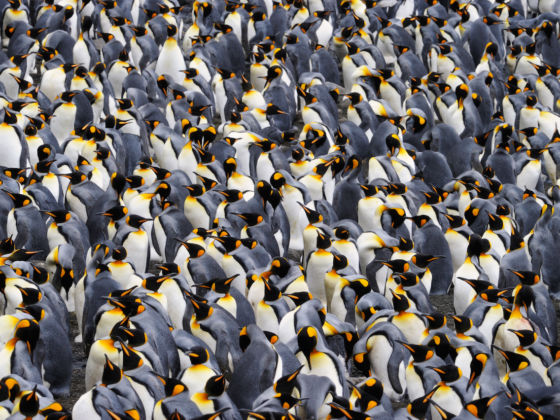L’Île aux Cochons (or Pig Island) is actually more like Penguin Island. This French territory in the Crozet archipelago (roughly located between the southeastern shore of South Africa and Antarctica) is considered to be the largest habitat of king penguins in the world. The island hasn’t been visited by researchers since 1982, but satellite images taken by helicopter in 2016 showed a startling change. Over the past 30 years, this penguin colony has seen an alarming decline.

World’s Largest King Penguin Colony Suffers a 90 Percent Drop in Population
By examining the images, researchers were able to estimate that, of the original 500,000 breeding pairs of king penguins in 1988, only 60,000 remained in 2016. The research team suspects climate may be the culprit, as warming temperatures have previously had negative effects on penguin populations throughout Antarctica. Competition for the island’s limited resources, however, may have also played a role.
If the satellite images are accurate, it would indicate a dramatic reduction of the global king penguin population, bringing their total number from 2 million to 200,000 birds. The Pig Island decline might even be enough to land them on the endangered species list. The tipping point for Pig Island is thought to have come in 1997, when an El Niño weather event caused temperatures to increase for a whole year, pushing the penguins’ food source too far south for them to retrieve it in time.
While king penguin colonies in the South Indian Ocean also felt El Niño’s effects that year, they were able to recover. Researchers have postulated that Pig Island’s unique decline may have also been due to an infection or parasite on the island, or a predator like feral cats devastating penguin nests.
Emiliano Trucchi, an evolutionary biologist at the University of Ferrara in Italy, published a paper earlier this year that predicted warming seas would cause all Crozet archipelago penguins to either relocate or die by 2100.
Hopefully, it doesn’t take us another 30 years to check in on the Pig Island penguins.
H/T: The New York Times